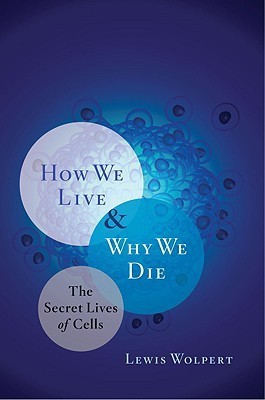
The Lives of a Cell: Notes of a Biology Watcher
Book Description
What if the secrets of life itself could be found within the tiniest of cells? In 'The Lives of a Cell,' Lewis Thomas masterfully blends science and poetry, illuminating the intricate dance of biology that underpins our existence. With vivid prose, he unveils the interconnectedness of all living things, revealing how cellular life whispers profound truths about humanity. Each page invites readers on a captivating journey through nature’s wonders, challenging perceptions and igniting curiosity. Can a deeper understanding of these microscopic worlds transform the way we see ourselves and our place in the universe?
Quick Book Summary
"The Lives of a Cell: Notes of a Biology Watcher" by Lewis Thomas is a collection of insightful essays that bridge the worlds of science, philosophy, and nature. Thomas, a renowned physician and biologist, uses poetic language to explore the interconnectedness of all living things, beginning at the microscopic level. Through his reflections on cells, ecology, and the human body, Thomas urges readers to see life as a complex web of relationships rather than isolated individuals. He draws analogies between cellular function and human society, challenging us to recognize our shared biological heritage with other species. By intertwining scientific observation with philosophical thought, Thomas inspires a deep appreciation for the beauty and complexity of life, encouraging a revised perspective on humanity’s role within the natural world.
Summary of Key Ideas
Table of Contents
Interconnectedness of Life
Lewis Thomas opens with the provocative idea that humans are not isolated entities, but multicellular organisms whose lives are deeply interwoven with those of countless other organisms. The eukaryotic cell, with its symbiotic mitochondria and diverse functions, exemplifies how cooperation at the smallest scales supports the existence of larger forms of life. Thomas uses this biological foundation to invite readers to reconsider boundaries: We are, in fact, composites—each person a microcosm representing the exuberant connectivity of nature.
The Cell as a Metaphor for Humanity
Drawing analogies between cells and larger systems, Thomas proposes that humanity as a whole can be viewed much like a gigantic multicellular organism. Our societies resemble complex biological systems, reliant on communication, trust, and interdependence, not unlike the coordinated activities within a single cell. This metaphor helps illuminate social structure, disease, and health, while subtly implying that division and isolation run counter to biological harmony. Through this lens, societal challenges come to mirror those of biology, such as cooperation for the common good and effective management of shared resources.
Humility in Biological Understanding
Thomas continually urges humility in the face of scientific discovery. He recognizes the limits of human knowledge about the natural world and cautions against arrogance. Advances in biology, such as genetic research and the study of microorganisms, often reveal profound gaps in what we think we understand. Rather than striving for total mastery, Thomas advocates for a respectful engagement with the processes of life, marked by curiosity, wonder, and a willingness to be surprised. This humility, he suggests, is essential for responsible scientific inquiry and environmental stewardship.
Human Impact on Nature
A recurrent theme is the impact of human activity on nature. Thomas explores how our technological advancements and population growth have shifted the balance of earth’s ecosystems. From pollution to extinction, he confronts the unintended consequences of progress, urging restraint and thoughtful action. Thomas posits that our biological heritage binds us to the fate of all life on Earth, reinforcing the necessity for enlightened self-interest and collective action to ensure ecological survival.
Language and Communication in Biology
The final layer of Thomas’s reflection concerns communication—within and between cells, among organisms, and throughout human society. He draws parallels between biochemical signaling and human language, emphasizing the evolutionary value of sharing information. In biology, cooperation and the exchange of signals are often more powerful than brute competition. Thomas’s essays ultimately celebrate the unity of life, arguing that by listening to the “notes” played throughout the living world, humanity can gain deeper insight into its place in the cosmos and the responsibilities that come with such knowledge.
Download This Summary
Get a free PDF of this summary instantly — no email required.





